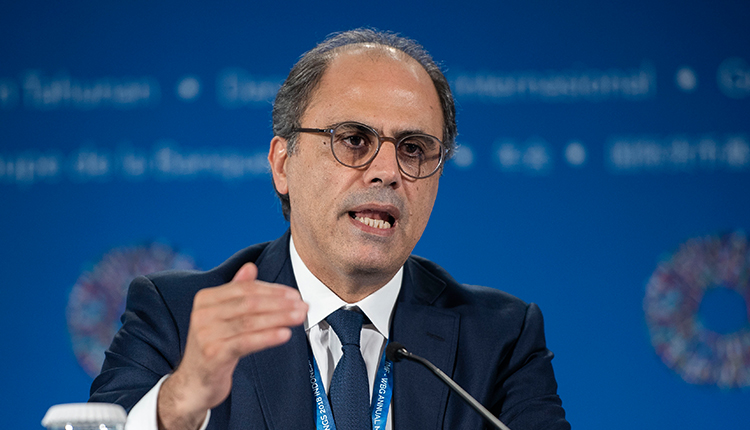IMF: Middle East, Central Asia economies face ‘perfect storm’ amid coronavirus
The Middle East and Central Asia are facing a “perfect storm” due to the coronavirus, as the pandemic impact resembles a dual reinforcing shock, a top International Monetary Fund official said on Wednesday.
Jihad Azour, who heads the IMF’s Middle East and Central Asia Department, said in an IMF podcast that the pandemic crisis is “like no other one before”, calling it “a double shock.”
“Where the spreading of the coronavirus and its impact on the economy, as well as also the oil shock, with the drop in demand and then the sudden decline in oil prices. All countries in the region were affected by this crisis and most of them have been trying to cope with the COVID-19 shock by introducing a certain number of measures to protect life and livelihoods and also to protect certain sectors in the economy.” Azour said.
The IMF official said this is one of the most challenging moments in economic history for both Central Asia Caucuses as well as also Middle East and North African countries.
The measures to contain the spread of the virus besides the aforementioned shocks have led gradually to shut down the economies of the region, Azour said.
“And this had a big impact on sectors that are job-rich like tourism, trade, as well as also other important sectors on the service side, which has complicated the management of the crisis, especially for countries where the level of informality is high.”
Azour said the oil exporting countries will face the impact of the shock on their revenues as well as also on their fiscal situation.
“Countries who have already buffers, they can use them to mitigate some of the repercussions of the shock. Others have less buffers and therefore for them the economic management is going to be more complicated,”
For the oil importing countries given the level of remittances, capital flows and investment coming from the oil producers, Azour said they will be also indirectly facing the impact of the drop in oil price.
The IMF official also referred to an additional complexity, especially given the limited infrastructure and the quality of health and healthcare protection in those countries affected by conflict or countries who are hosting a large number of refugees. This adds into the complexity of managing the ongoing coronavirus crisis, he added.
This, Azour said, would require special attention, especially for countries where the level of fragility is already high.
“Well let’s say first that countries have moved fast in trying to address the implications of the coronavirus shock, and they have mobilised both in terms of additional spending as well as also other physical measures in order to cope with the challenges of this crisis.
“On average more than three and a half percent of GDP was spent to address that. And here, the situation is different between countries. Countries that have high level of buffers, they can expand their spending.”
“Others, they need to find other ways and means through reallocation of their budget envelope by reprioritizing some of their spending in order to give priority to healthcare and spending on other needs that will have them protect the lives of their citizens.”
Azour added that the crisis will hit more low-income countries, developing countries than the rest of the world. Therefore, there would special attention needed to be put in order to help those countries cope with the multiple repercussions of the shocks and also help them very quickly restore and repair their economies, he said.


